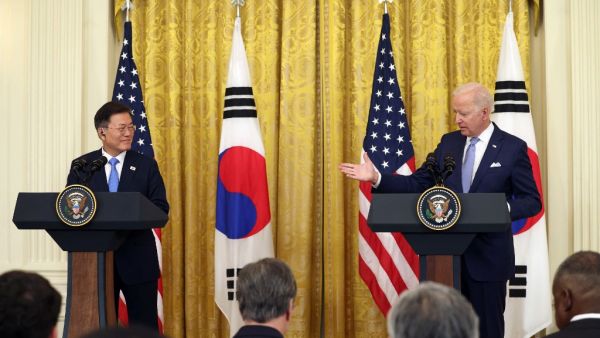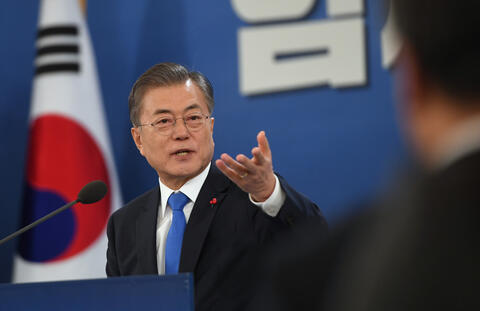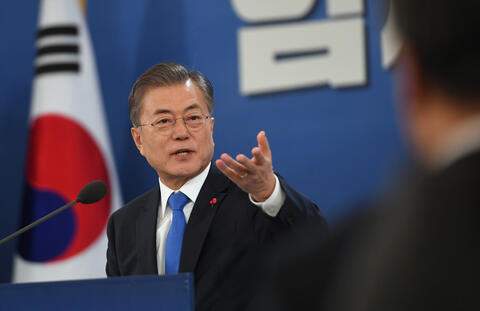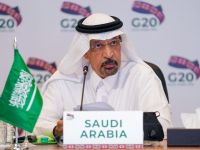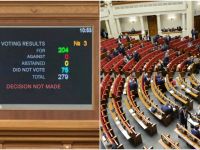The United States has signaled a desire to resume stalled nuclear negotiations with North Korea by designating a special envoy, South Korean President Moon Jae-in said on Wednesday.
"The appointment of a special representative to North Korea by the United States is equivalent to requesting that North Korea resume dialogue," Moon said at a briefing with the heads of South Korea's major political parties, following his trip to the United States last week.
During Moon's visit, which lasted from May 19 to Sunday, U.S. President Joe Biden named career diplomat Sung Kim, currently ambassador to Indonesia, as special envoy to North Korea.
US will proceed with close consultation with Republic of Korea & to help drive these efforts, I'm pleased to announce that Ambassador Sung Kim will serve as US special envoy for DPRK (North Korea): US President Biden during press conference with South Korean President Moon Jae-in pic.twitter.com/V4Vf4s9nQs
— Economic Times (@EconomicTimes) May 22, 2021
Moon told the party leaders that his summit with Biden on Friday "exceeded expectations."
"A solid consensus has been established between the ROK and the United States to advance the peace process on the Korean Peninsula," Moon said. The Republic of Korea is the official name of South Korea.
Moon said that a joint statement issued with Biden uses previous agreements with North Korea, including the 2018 Singapore Declaration between then-President Donald Trump and North Korean leader Kim Jong Un, "as a starting point for diplomacy and dialogue."
On the basis of these agreements "it is possible to resume dialogue and start the peace clock again," Moon said.
The June 2018 summit in Singapore produced a joint declaration in which Kim "reaffirmed his firm and unwavering commitment to complete denuclearization of the Korean Peninsula," while Trump committed to providing security guarantees to North Korea.
However, nuclear negotiations between the United States and North Korea stalled after a second Trump-Kim summit in Hanoi, Vietnam, in February 2019 ended without an agreement. Pyongyang had been seeking concessions such as the easing of international sanctions in exchange for taking steps toward dismantling its nuclear arsenal, while Washington held firm on complete denuclearization first.
North Korea also cut off all direct communications with the South last June and destroyed a shared inter-Korean liaison office in its border city of Kaesong.
Biden said during a joint press conference with Moon on Friday that he would not rush to meet with the North Korean leader without certain conditions in place, however.
"I would not do what had been done in the recent past," Biden said. "I would not give [Kim] all that he's looking for: international recognition as legitimate and allow him to move in a direction of appearing to be more serious about what he was not at all serious about."
US, South Korea willing to engage diplomatically with North Korea https://t.co/4CPWu1V7dL pic.twitter.com/GLHj7kfqTV
— ANADOLU AGENCY (@anadoluagency) May 21, 2021
Biden said he would consider meeting Kim only if a commitment for "discussions about his nuclear arsenal" were in place, based on an "outline made that my Secretary of State and others would have negotiated as to how we would proceed."
On Wednesday, Moon highlighted other takeaways from his summit with Biden, including the lifting of longstanding restrictions on South Korea's ability to develop its own long-range missiles and Washington's promise to provide vaccines to 550,000 South Korean troops, which he called "a very meaningful gift."
"As security and peace cooperation between South Korea and the United States has been further strengthened, the breadth and depth of cooperation has greatly expanded in all areas, including the economy and technology, health and vaccines and response to climate change," Moon said.
This article has been adapted from its original source.


